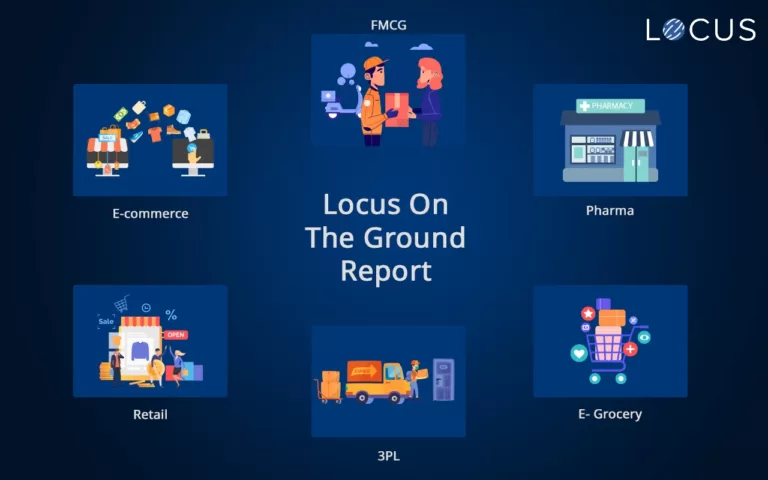Healthcare / Pharmaceutical, Last Mile Delivery Optimization, Route Optimization
Managing the Pharma Supply Chain smoothly amidst the COVID-19 chaos
May 6, 2020
5 mins read

We’re in the year of a devastating global pandemic that has put the entire mankind at risk. The COVID-19 outbreak has affected over 3.5 million people so far and is continuing to disrupt normal life and economies around the world. Over 100 vaccines are currently under pre-clinical tests, but healthcare experts are still not sure when a vaccine will be ready. Prevention is the only cure to the disease as of now.
While more than one-third of the world’s population hibernated for social distancing and businesses across industries halted operations to prevent the virus from spreading, doctors, nurses, midwives and workers in life sciences have been constantly working hard to provide critical health services, sanitization kits and essential medicines to millions suffering from the disease and those vulnerable to it. After all, humankind is on the line.
The rapidly increasing demand for life-saving medicines, healthcare services, and clinical equipment is a massive opportunity for healthcare enterprises to grow and flourish. But at the same time, the outbreak is causing major disruptions in supply chains around the globe, and healthcare is no exception. The pandemic has brought with it some outstanding growth opportunities for the pharmaceuticals industry, but a set of underlying challenges as well.
Impact of Coronavirus on the Pharmaceuticals Supply Chain
Sourcing medical supplies
China and India dominate the global pharmaceuticals supply chain. China is the world’s largest producer of Active Pharmaceutical Ingredients (APIs) and over-the-counter drugs. These drugs range from calcium supplements to cancer and HIV drugs. The United States is one of the biggest importers of medicines and medical supplies from China. In fact, 95% of imports of ibuprofen, 91% of hydrocortisone, and 80% of antibiotics supplies to the US come from China.
The severity of the pandemic in China has hugely impacted the manufacturing of pharmaceutical supplies, directly affecting their availability globally. Over-the-counter medicine shipments have gone down drastically. Hand sanitizer, also commonly sourced from China, has disappeared from U.S. stores. The shortage of APIs is also affecting the research and development processes of the COVID-19 vaccine.
Manufacturing and export of drugs
On the other hand, India accounts for over 20% of global exports of generic medicines, making the country the largest provider of generic medicines to the rest of the world. However, India heavily relies on China for pharmaceutical ingredients to manufacture these generic drugs. At the same time, due to social distancing and lockdown policies, the industry is facing a scarcity of workers causing hiccups in the manufacturing of medicines.
The country has currently restricted the exports of 26 active pharmaceutical supplies, causing a major global shortage of drugs such as paracetamol, several antibiotics including tinidazole, erythromycin, the hormone progesterone, and vitamin B12. Importers such as the United States of America, Russia, South Africa, and Nigeria are most likely to be affected by this sudden and uncertain restriction imposed by the Indian government.
Medical logistical challenges
Adding to the already existing complexities in the pharmaceuticals supply chain are the logistical challenges in shipping and transporting drugs and medical equipment around the globe. COVID-19 has caused sudden and dramatically high demands of certain life-saving medicines. For instance, India recently had to export 35.82 lakh tablets of hydroxychloroquine, an anti-malaria drug to the US as it has been identified to have potential treatment abilities for the pandemic by the US Food and Drug Administration.
Due to the shortage of labor and lockdown restrictions, the packaging, shipping, and distribution of medicines in such huge quantities is extremely difficult. Many drugs are temperature-sensitive and must be shipped in refrigerated trucks and handled with utmost care during transit. Managing fleet capacities and ensuring on-time delivery of essential medical supplies to hospitals is also a challenge due to custom and cross-border restrictions. Moreover, lack of visibility in the healthcare supply chain is a huge matter of concern, especially in today’s unusual times.
Coping with supply chain disruptions in the pharmaceutical industry
This is the time for enterprises in healthcare and life sciences to rise to the occasion and step up their supply chain management in order to make the most of the opportunities coming along the way.
To cater to the unusual needs of mankind in this global crisis, healthcare enterprises must come together and save lives. By partnering with small-scale pharma companies, large manufacturers can boost their production capacities and deliver huge volumes of life-saving drugs and medical supplies within time.
The accuracy and speed of medical logistics can be the difference between life and death. By outsourcing the distribution of pharma supplies to third-party logistics providers, pharma companies can save time in planning distribution operations and cut down logistics costs substantially.
Using the latest technology in supply chain management can help pharma companies overcome logistical hurdles and improve the efficiency of delivery operations. AI-based logistics solutions such as Route Optimization can help pharma companies plan secondary and last-mile delivery routes in no time and cost-effectively.
Smart packaging, and real-time temperature monitoring tools can help in ensuring the smooth flow of specialty drugs that need handling with care. The use of shipment tracking solutions with predictive alerts can help in identifying any on-ground glitches, bringing more visibility in the pharma supply chain, and ensuring on-time delivery of essential medical supplies.
How to increase visibility for on-demand pharma companies? Download Case Study!
Speed, flexibility, and the ability to scale up operations to meet the dynamic demands will be the key differentiators for pharma companies, and technology will be their best ally in tackling supply chain challenges effectively.
Locus helps supply chain businesses in healthcare reduce logistics costs and achieve on-time delivery of essential medical supplies. Get started with your free demo from Locus Experts and optimize your medical logistics operations now.

Related Tags:

Delivery Experience
Refrigerated Logistics becomes a mainstay in Grocery deliveries
In the next ten years, 70% of American consumers will regularly do grocery shopping online. – Food Marketing Institute. The sudden growth of online grocery sales has led to increased demand for cold-storage products. A challenge that grocers face in refrigerated logistics is that consumers are very picky when it comes to food and consumables. […]
Read more
Featured
Locus On The Ground April Report: The Ripple Effects of Lockdown
With countries across the world in various stages of lockdown, business sectors have been affected in different ways. While traditional FMCG is doing relatively well, other sectors have taken a hit. For this month’s Locus On The Ground April Report, we are focusing on the South & Southeast Asia markets. Locus, which has clients in […]
Read moreMOST POPULAR
EDITOR’S PICKS
SUBSCRIBE TO OUR NEWSLETTER
Stay up to date with the latest marketing, sales, and service tips and news


Managing the Pharma Supply Chain smoothly amidst the COVID-19 chaos